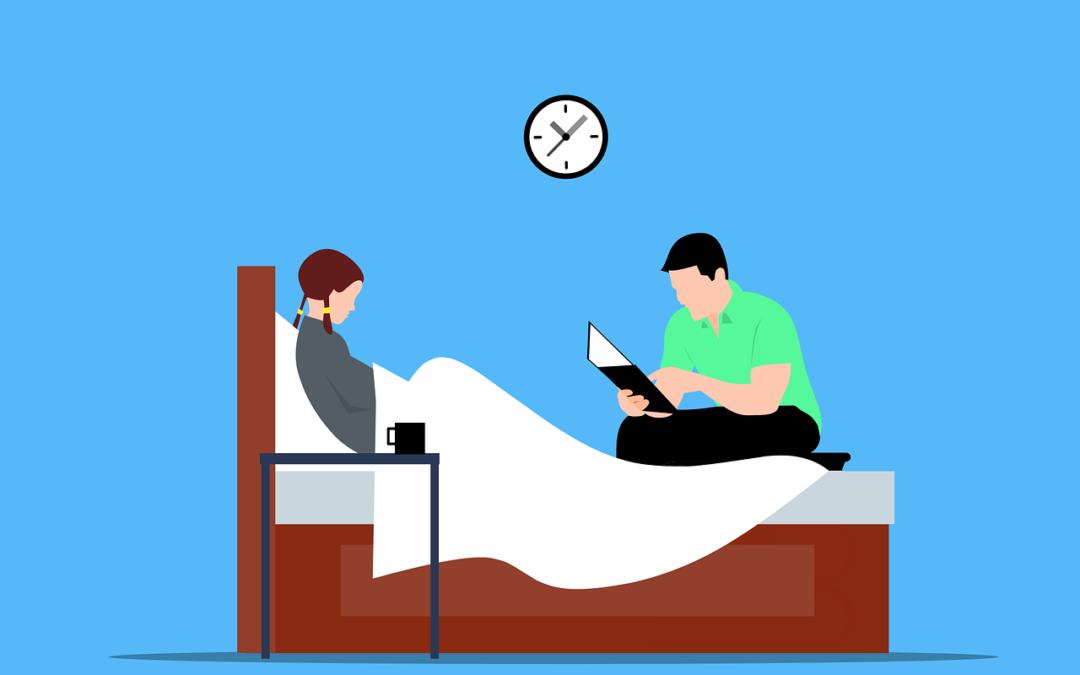A good night’s sleep is a marvelous thing. I find myself cranky for no apparent reason when my sleep isn’t good. It never fails to amuse me how my vocabulary and word and name recall deteriorate drastically after a night of poor sleep. This is just one person’s experience, of course.
But there was a study published in the American Journal of Pediatrics looking at the sleep patterns of over a thousand children that discovered some rather surprising information. Sleep deprivation in preschool age children appears to set up behavior problems years down the road. Sleep deprivation in early elementary age children appears to be reflected in more immediate behavior problems.
Preschoolers (ages 3-5 years) generally need between 10-13 hours of sleep per night, and school-age children (ages 6-13 years) need between 9-11 hours of sleep per night.
The nature of these behavioral problems falls in the category of executive functioning. Children whose sleep at ages three and four lasted fewer than 10 hours per day were described by mothers and teachers as more likely to have problems with attention, emotional control, and peer relationships later in mid-childhood. Older children whose sleep is under par struggle similarly, but the effect is immediate rather than delayed.
Keep in mind, these aren’t necessarily children with chronic trauma histories; these are just children with disturbed sleep. It occurs to me that these same behavior problems are all too familiar to parents and caregivers of children with chronic trauma histories. So, it seems worth our time to invest in a good night’s sleep to ease this source of stress that leads to the behaviors that can be so very challenging in the family’s day.
Some children with trauma histories are too afraid to fall asleep. Their bed was just not a safe place. Once asleep, research suggests that rapid eye movement (REM or dream) sleep appears to be the stage most affected by trauma experiences. REM sleep is important for storing memories and processing emotions, and dreams during REM sleep tend to be more fantastical and bizarre so awakening becomes more likely.
Here are some tips for supporting a good night’s sleep for your children and yourselves:
- We all sleep better when they have the same bedtime and wake time daily.
- Try to use the bed only for sleeping. Lying on a bed and doing other makes it hard for your brain to associate your bed with sleep.
- The bedroom environment should be cool, quiet, and comfortable.
- If you tend to stare at the clock, hoping to fall asleep, just turn the clock away.
- A predictable series of events should lead up to bedtime. This can include brushing teeth, putting on pajamas, and reading a story from a book, a glass of water, or prayers.
- Before bedtime is an ideal time to relax by listening to soft, calming music or reading a story. It is best to keep video games, televisions, or phones out of the bedroom and to limit their use at least 1 hour before bedtime.
- Need help relaxing? Take 3 deep and slow breaths or think of positive images like being on a beach.
- Exercising earlier in the day can help anyone feel more energetic and awake during the day, have an easier time focusing, and even help with falling asleep and staying asleep later that evening.
- Avoid caffeine in the late afternoon and throughout the evening. It can cause nighttime awakenings and shallow sleep. Ginger Ale, Mug/A&W Root Beer and lemon lime sodas are caffeine free.
- If you can’t sleep, get out of bed to avoid the bed being associated with sleeplessness. If a child is tossing and turning in bed, have them get out of bed and do something that isn’t too stimulating, such as read a boring book (e.g., textbook).
- The ideal time for a child to go to bed is when they are drowsy, but still awake.
- Giving a child a security object (stuffed animal or soft blanket) can be a good transition to help them feel safe when a parent isn’t there.
- When checking up on a child, the main purpose is to let them know you are there and that they are all right. The briefer and less stimulating, the better.
- Some children feel safer sleeping on the floor or even under the bed. Safety and security are the goal here so respect this need.
- Maintain a sleep diary to track naps, bedtimes, wake times, and behaviors to find patterns and work on problems when things are not going well.
A nap can improve cognitive functions such as memory, logical reasoning, and the ability to complete complicated tasks after a poor night of sleep. A 20-minute nap avoids the deep sleep stage that can leave us groggy and difficult to waken, so set an alarm. Try to nap before 3 pm. Rest Periods can restore calm to agitated children but do not take the place of sleeping well or napping.
Part of me hopes this was boring enough to put you to sleep…night night.
NEWS
- Check out the AZAFAP Event Calendar at https://azafap.gnosishosting.net/Events/Calendar.
- Our Friday night Happy Hour and Tuesday afternoon Coffee Chat continue. Some find Nancy or me and a single other participant; others find a conversation among 4 to 12 people. The topics range from the silly to what hobbies have us in their grip to what life has thrown in our path. If you ever find yourself wanting a bit of grown-up conversation, consider joining us (check your email for the unchanging link).
- The Caring for Caregivers project provides counseling sessions for those who do not have insurance to cover counseling services. Find the information and link at https://www.azafap.org/family-support-services/
- Parent Mentor Partners: AZAFAP has trained volunteer parents as mentors who are ready to help support foster, kinship, and adoptive parents through one-to-one conversations. Interested? Fill out the form at https://www.azafap.org/family-support-services/
- I encourage you to check out what Dr. Bruce Perry has to offer. Find his thoughts at https://youtu.be/uOsgDkeH52o?t=3 and at https://www.neurosequential.com .
Thanks for listening. Maintain yourself so you can be there reliably for others.
Cathy (cathyt@azafap.org)


Recent Comments